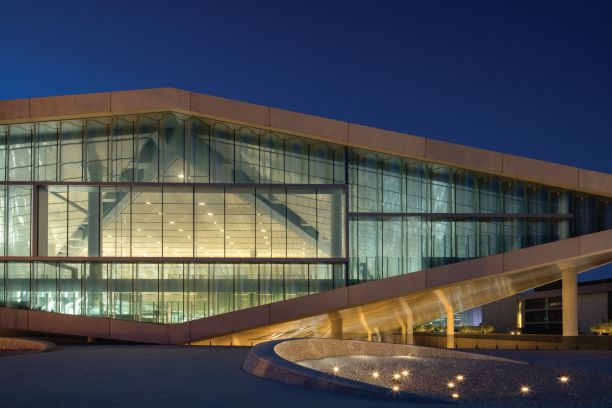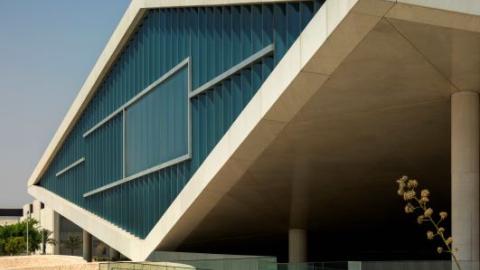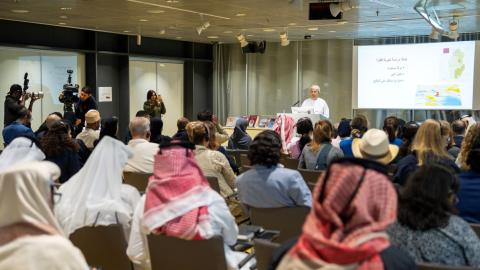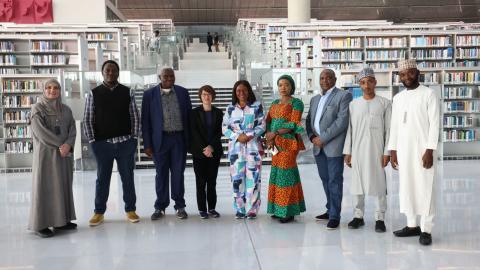
Qatar National Library’s IFLA Preservation and Conservation Center hosted a webinar on how technology developed by INTERPOL can be leveraged by organisations and individuals across the world to identify and then prevent the sale of stolen goods.
Titled “Illicit Trafficking in Cultural Property and INTERPOL’s Tools,” the webinar, which took place on 12 March, discussed the process of gathering and processing information using Interpol’s online database to identify and report stolen heritage items. The event attracted a variety of regional cultural and law enforcement agencies and was held within the framework of the Himaya Project, Qatar National Library’s initiative to support and collaborate with organizations to prevent the trafficking of cultural heritage.
Tiziano Coiro, a coordinator from INTERPOL’s Works of Art Unit, explained how the organization’s Stolen Works of Art database and its ID-Art application can be used to identify stolen cultural property and increase the chances of recovering stolen items.
Publicly available for download, Interpol’s ID-Art application provides access to the Stolen Works of Art database, which contains more than 52,000 objects from 134 member countries. The application can be used by police officers, customs officials, private collectors, journalists, and the general public to check if an object is registered as stolen and to report stolen items or highlight cultural sites potentially at risk of illicit excavations.
Tan Huism, Executive Director of Qatar National Library, addressed the webinar attendees and highlighted the Library’s efforts in working with international and regional entities to support the fight against the trafficking of documentary heritage in the region.
“As custodians of the region’s most historic artifacts, the items that we preserve and exhibit are much more than objects,” she said. “They represent what we are as a society. They encapsulate our history, values, beliefs, and identity, and they connect us to our past and serve as a guide for our future.”
The Library will pursue its efforts in this regard, Mrs. Tan added, noting that as the regional IFLA Preservation and Conservation Center, it will be hosting annual workshops later this year to combat illicit trafficking. The workshops will bring together government officials, along with regional and international experts representing UNESCO, UNIDROIT, INTERPOL, the World Customs Organisation (WCO), various ministries, ALECSO, Qatar’s General Customs Authority, the FBI, French customs, and the Carabinieri Unit of Rome for the Protection of Cultural Heritage, among others.







